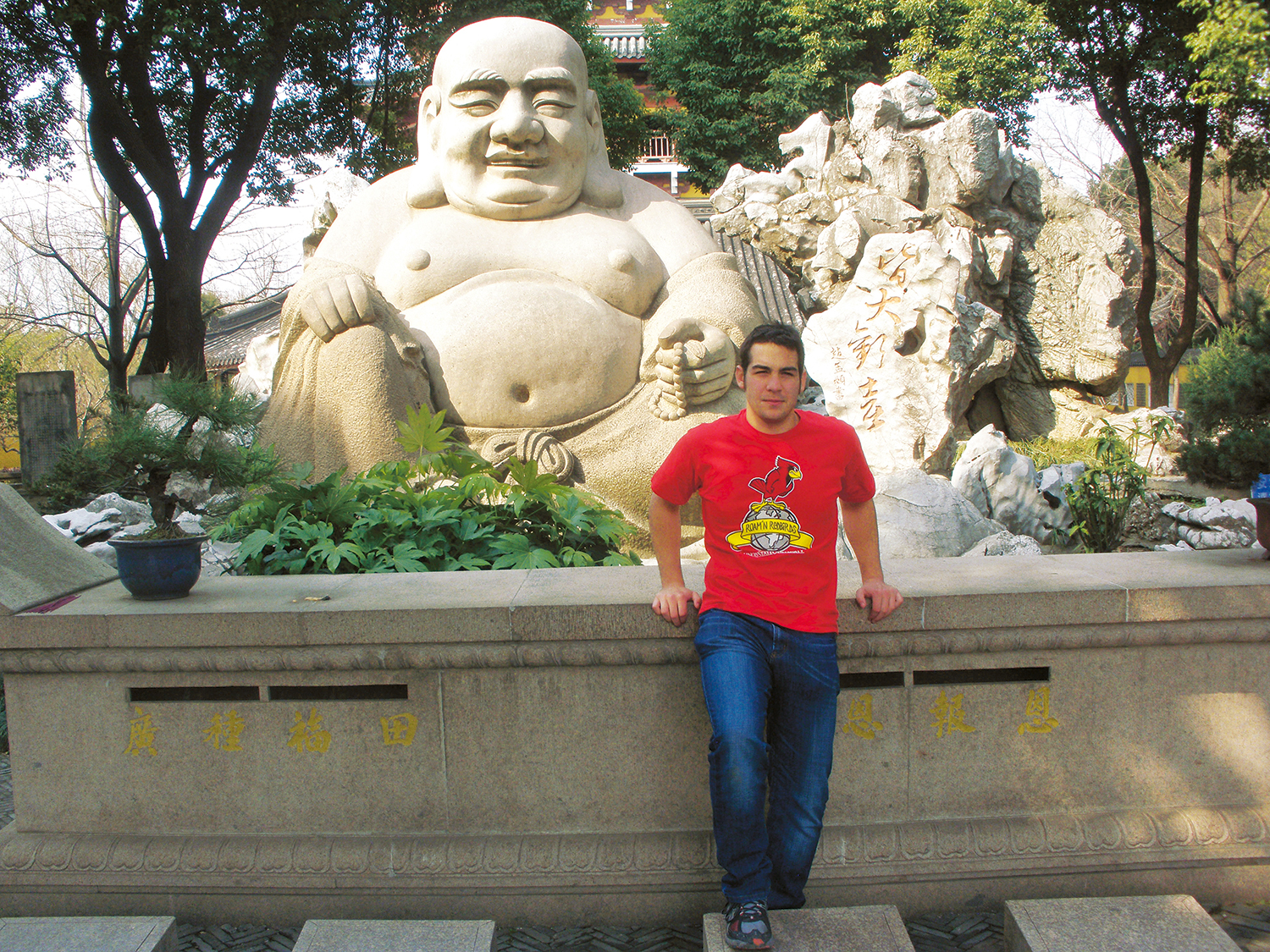Something Shannin Hespeler will never forget: walking up the stairs at Phillips Global in Amsterdam, heading toward the presentation room with its sophisticated furniture and ultra-modern lighting, on her way to meet with CEO Frans van Houten.
“He was a really cool guy,” said the senior international business major from Cary, Illinois, when recalling the man who sat down with a group of exchange students. What she especially remembers is what van Houten wanted to talk about: what it takes, personally, to be CEO of Phillips Global.
“He never stops working, never stops moving, not even on vacation,” Hespeler said.
That insight is exactly what Barbara Ribbens has in mind when business students trek to the far corners of the world through study abroad, exchange programs, and international internships.

The College of Business has an edge when it comes to doubling the number of students going abroad in the next five years, a goal in ISU’s international strategic plan.
Now in her fourth year as director of the International Business Institute in the College of Business (COB), Ribbens exudes true passion for global study.
“It broadens you and it deepens you,” she said. “You will gain confidence and inner strength because of what you experience.”
Because it offers a major in international business (the only one at a public university in Illinois), COB has an edge when it comes to doubling the number of students going abroad in the next five years, a goal stated in ISU’s international strategic plan. International business majors, currently around 135 students, are now required to complete some kind of overseas component.
“In conversations I’ve had with people in human resources, graduates in international business really don’t have credibility unless they’re traveled,” Ribbens said. “Even if an entire semester isn’t feasible, a shorter program will get the student culturally exposed.”
Two-way exchanges
Ribbens coordinates all study abroad activities for COB, including nine exchange programs. Eleven business students were in Europe on exchanges last fall, twice the number in any previous fall semester during her tenure. Exchanges work two ways: ISU students attend partner universities overseas and those institutions send their students to ISU. Participants may pay extra fees to the host institution but no additional tuition.
One exchange is with the ESSCA School of Management in Angers, France, which five ISU students attended last fall. Four students spent the year at the University of Paderborn in Germany in a transfer degree program that can lead to two international business degrees, one from ISU and one from Paderborn.
Students can also line up outside-the-box opportunities to satisfy special interests or career goals. For example, a business student recently completed a semester at a university in Johannesburg, South Africa.
“It’s absolutely critical to be exposed to international business.” —Barbara Ribbens
“If you want to study anywhere in the world, you can,” Ribbens said. But she feels that student investment in the experience is essential. “Students have to do a fair bit of the legwork in seeking situations and figuring out what works for them.”
Many business students dream of finding a career-stoking internship. What’s even better? Finding one overseas. Ribbens said that several students have interned in Mexico with PricewaterhouseCoopers and another recently worked for an insurance company in Delhi, India.
“I’m constantly looking to make connections so students can find internships that connect global travel with work experience,” she said.
Off the grid
Carol Martinez is a senior international business major from Alsip, Illinois, who last summer spent 11 weeks interning with a business development and entrepreneurship program in Panama. While she thought she wanted to study abroad in Paris or find an internship in Europe, Martinez found herself part of a start-up team for Kalu Yala Farms, a company producing specialty food products in the tropical frontiers of Panama.
“This internship was beyond your typical study abroad program,” Martinez said. “Dr. Ribbens explained to me that emerging markets are the new thing, that I would learn so much more. I ended up building a business model for the company and had a real impact.”
Martinez spent time “off the grid,” leading research and development and conducting hands-on field research to bring a new organic tea product to market.
“The business models we built are laying the groundwork for an entirely new town dedicated to self-sustainability,” Martinez said. She was the first student from ISU to participate in Kalu Yala, which provides internships to students in areas beyond business, including biology, agriculture, outdoor recreation, health and wellness.
Martinez said she was so captivated by the experience that she is hoping to focus the remainder of her coursework and her career on corporate social responsibility and sustainability.
“I had to assimilate into another culture and be around people who were different; I came back a different person,” she said.
Beyond hand-holding
Ribbens feels one of the advantages of an international experience is that students must learn to find their way in another system, whether in a university or an office. Hespeler seconded that as she recalled her first days at Hanze Applied University in the Netherlands.
“They gave us a tour of the building once but said we would have to figure it out from then on,” she said. “Because if you’re in business and you travel to another country, nobody will be there to hold your hand.”
That’s just one of many reasons why Ribbens believes all business students stand to gain from completing an international experience.
“Every business is global,” she said. “If a business is not global itself, they have global customers or global suppliers. It’s absolutely critical to be exposed to international business. And you’ll have stories that will stay with you the rest of your life.”

